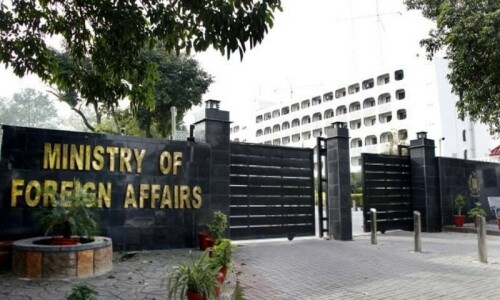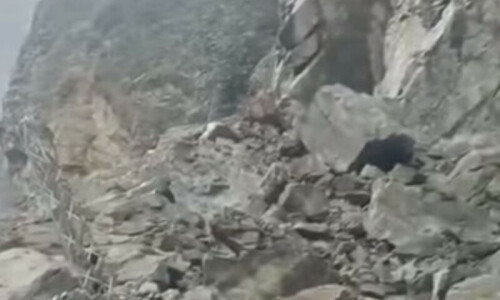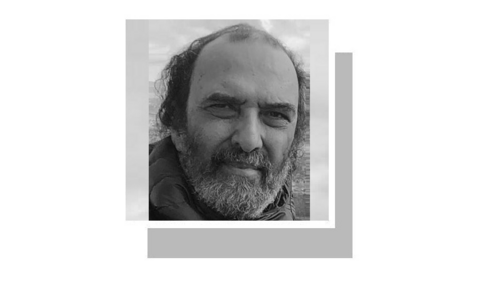
IN the heart of Mastung city, the Shaheed Nauroz Football Stadium is located on a huge, walled tract of land. This was where, in 2011, the All Pakistan Football Tournament was held. Siraj Raisani, younger brother of then chief minister Nawab Aslam Raisani, was invited as the chief guest to the final. At the time, Baloch separatists held sway in the district, and they had warned Siraj Raisani of dire consequences if he visited.
As the final match started, locals say, he arrived with a tribal force of 200 men and as many security personnel. There were around 2,000 spectators in the stadium. All through the course of the match, Siraj’s younger son stood by him in guard; it was during the award distribution ceremony that tragedy struck. A hand grenade was hurled at Siraj Raisani, and while he escaped the assault narrowly, his son Hakmal was badly injured. The young man succumbed to his injuries on July 29, 2011, while being moved to Quetta’s Combined Military Hospital. In addition to Hakmal, another man was killed while 39 more were injured.
Following the death of his son, which was claimed by Baloch separatists, Siraj Raisani sided completely with the state against the insurgents. Subsequently, he launched his own party, the Balochistan Muttahida Mahaz. In recent times, this was merged with the Balochistan Awami Party (BAP), and Siraj was contesting elections in PB-35 against his brother, Aslam Raisani.
In Mastung, politicians campaigned actively for the first time, holding rallies and corner meetings. But elections in PB-35 have been cancelled after the killing of Siraj Raisani.
Shabbir Baloch in Mastung says that he became fearful when he witnessed the vigorous electoral campaign here. “I told my colleagues that the elections would be bloody,” he recalled. “Graffiti, allegedly inscribed by banned Baloch outfits, appeared in the bazaar warning people to stay away from Siraj’s electoral campaign.”
On July 13, Siraj Raisani was continuing with his electoral campaign; a week ago, he had inaugurated the BAP office in Mastung. Finally, party workers set up tents in Dringrah. Candidate Usman Pirkani organised this public meeting, and had asked his Pirkani tribesmen from the remote areas of the district to attend.
A bomb explosion ripped through the crowd at 3:50pm. “I was in the crowds,” remembers Asif Pirkani. “Many of those standing died on the spot, and parts of their bodies rained down on me. I fled the destroyed tent.”
Dringarh is a vast but thinly populated area of 10 villages, with the people belonging to different tribes. It was here that in 2014 a bus carrying Hazara pilgrims was targeted by a suicide bombing that left some two dozens dead. That destroyed bus lies to this day in front of the Levies Station.
Currently, there is tight security in Dringarh and people are reluctant to talk. The victims of the July 13 attack came mostly from outside — the casualties from this area constitute mainly children. The majority of the people killed in the Mastung bombing are from the Pirkani tribe, who are mostly nomads — many don’t even have national identity cards. They did not know who Siraj Raisani was, and Usman Pirkani — who had instructed them to attend the rally — did not himself go. Mohammad Zia, in his late ’60s, lost two sons, along with his nephew. They knew nothing about politics, he said.
One of the injured is Mohammad Azim Pirkani, who is being treated in the trauma centre of the Quetta Civil Hospital. “Everyone one was going, so I joined in,” he said. Three of his colleagues were killed and another was injured. Similarly, another injured man is Rafique, who is a Sindhi man from Quetta. He is not a local of Mastung, but had gone there as a new member of the BAP.
Why did Usman Pirkani himself not go? He said that he was busy with his own corner meeting in Quetta.
The Pirkani tribes are fed up with burying their dead. Qasim Pirkani says they buried 15 men on the first day alone. By local journalist Attaullah’s account, in some places in Mastung, room in graveyards ran out.
Though this bombing was one of the biggest attacks in the country, the day it occurred it was not given adequate coverage by the media. And, beyond Balochistan, hardly anyone knew who Siraj Raisani was. It was only when COAS Qamar Javed Bajwa attended his funeral that the media tuned in.
The tragedy of the Raisani family stems partly from the coincidences: like his son Hakmal, Siraj was injured in an explosion in the same month, in the same district. He, too, died on the way to Quetta’s Combined Military Hospital. At first, it was believed he was targeted by banned Baloch outfits, but security forces said that these organisations do not have the capability to carry out such attacks. After that, the so-called ‘Islamic State’ claimed responsibility. The security forces have reportedly taken robust action against IS and Lashkar-i-Jhangvi militants in Mastung.
Published in Dawn, July 18th, 2018











































